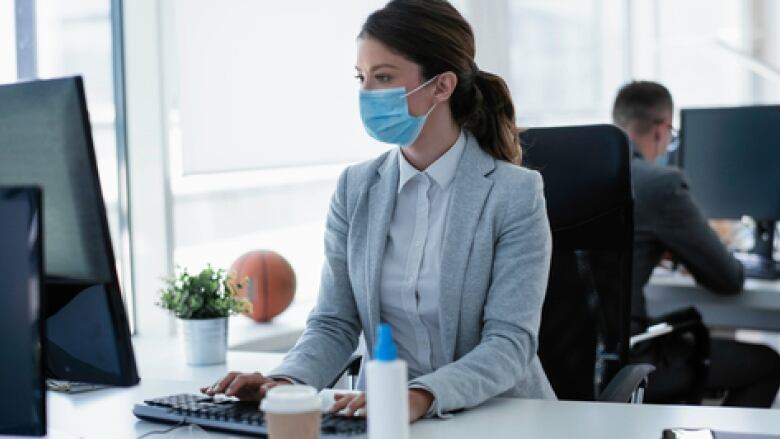Know your workplace policy if you've been to a COVID-19 exposure site, say lawyers
There may be a threat of losing two weeks of work for low-risk exposure

Two Halifax lawyers say it's important to pay attention to your company's COVID-19 policy when it comes to telling your boss that you were at a potential exposure site.
There have been roughly 40 public locations flagged by Public Health this month, most of themin the greater Halifax area. A spokesperson for the Department of Health and Wellness says each exposure noticewill provide specific information for people who were at that location.
On Friday, the province announced new measures in the greater Halifax area to try and reduce community spread, such as limiting social gatherings to five people.
While some advisories simply ask people to self-monitor for symptoms, others, such as recent cases atThe Pint Public Houseor Durty Nelly's, require anyone present at the time of an exposure to schedule a COVID-19 test.
But lawyers say whether you notify your workplace that you were at one of these sites depends on a number of factors and the level of risk involved.
"For any particular employee, it's a question of judgment and circumstances," said Jillian Houlihan, a partner at Pink Larkin in Halifax.
"Inthe absence of a Public Health directive or an expressed requirement from your employer, there's no particular obligation to notify your employer that you've been at a location where one of these advisories has been issued."
Houlihan said when Public Health asks individuals to monitor for symptoms, the risk of a person contracting COVID-19 from that site is "extremely low."
In that case, she said she would be wary about sharing that information unless absolutely necessary. That's because an employer could send a person home for two weeks without pay, even if they are at a low risk of contracting the virus from the exposure site and don't have any symptoms.
"It's asking a lot of employees," she said. "A lot of people don't have access to paid leave in a situation where they may not be welcome in the workplace, they may not have the option to work from home."

Michael Murphy, a lawyer at McInnes Cooper in the labour and employment group, said he understands there may be a fearof missing out on work, but people should make sure they understand their employer's COVID-19 policy before keeping information to themselves.
Some workers are required to undergo a screening questionnaire, which askswhether they have come in contact with someone who has COVID-19 or if they have had any possible exposure to the virus. Murphy said not answering that truthfully could put a person at risk for "some form of disciplinary action."
This situation could also fall under Nova Scotia's Occupational Health and Safety Act, which Murphy says outlines that employees must take "reasonable precautions" to ensure health and safety in the workplace.
"If they know that they have been to a site where there was exposure and they don't bring that to the employer's attention, and then something unfortunate comes out of that, then there could be some potential liability for them," he said.
Murphy said even then it may be challenging for employers to establish a link between a workplace outbreak and one particular employee. But if the company has a policy around COVID-19, it may be able to say a worker violated that by not speaking up.
Houlihan said one casewhere employers askfor more detail on what employees are doing outside of work is in the long-term care sector, or in jobs that involve vulnerable populations.
But Houlihan said if employers are asking people whether they have been to an exposure site, it's not clear what, if anything, they can do with that information. Without symptoms or a directive from Public Health, an employee cannot simply get tested for COVID-19, she said.
"If you've got an employee that's been potentially exposed at one of these sites, do you want to remove them from the workplace for the next 14 days? Probably not," she said.
"I think the advisories are a helpful reminder to people that any of us don't know what any of us have been exposed to when we leave the workplace."
'Close scrutiny' around social activities
Houlihan said there is also a potential co-workers may be uneasy if they learn someone has been tested for COVID-19
"There's also an element of close scrutiny around our activities right now," she said. "I think if you've been exposed because you've been at a bar, people in the workplace are going to be questioning whether that's something you should have done."
But Murphy said he hopes people won't be judged simply because they have been tested for the virus.
"Getting tested is something people should be doing, it's part of the fight against COVID," he said.
The Health Department says anyone who has symptoms of COVID-19, regardless if they have been in a potential exposure, should complete the online self-assessment or contact 811 and stay home if they are feeling unwell.












_(720p).jpg)


 OFFICIAL HD MUSIC VIDEO.jpg)
.jpg)



























































































